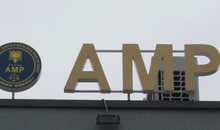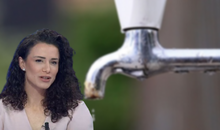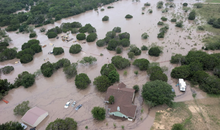
Expensive food, but Albania held a record for the weight of agriculture in Europe in 2024
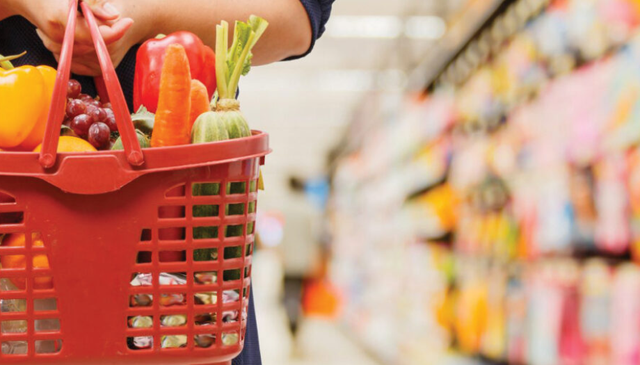
Albania is facing a paradox, where food prices for the first time in history exceeded the European Union average, but meanwhile the country has the highest share of agriculture in all of Europe.
The latest Eurostat data revealed that the "agriculture, fishing and forestry" sector contributed 17.9% to the creation of Albania's overall economic value in 2024. This share is much higher than the European Union average of 1.7%, but also more than double compared to countries in the region.
In second place is Kosovo, where agriculture contributes 8.8% of gross value added. In third place is North Macedonia, with 8.8%, followed by Montenegro with 6.5%, Turkey with 6.3% and Bosnia and Herzegovina with 5%.
In the region, Serbia has the lowest share of agriculture, with 3.7%, being lower than even Greece (3.8%) and Croatia (4.1%).
In Albania, the contribution of agriculture to the economy has been decreasing over the years, while in 2019, this indicator was 21%, but the country still remains the most agricultural in Europe. The fact that we are the most agricultural country in Europe has not helped at all for the country's citizens to have cheaper food products. On the contrary.
Other Eurostat data showed that for the first time since 2005, when the European statistics agency measures the data, the Food and Non-Alcoholic Beverages Price Index for Albania has easily exceeded the 100% level (100.1%).
This means that food prices in Albania are 1% more expensive than the European Union average, while incomes according to the purchasing power parity method are 41% of the EU average. The most expensive food products for Albanian households compared to the EU are eggs, cheese and milk, which have jumped to 131% of the EU average, from 119.5% the previous year.
Albania has the most expensive prices compared to the countries in the region. Serbs buy food at prices that are 96.4% of the EU average. In Montenegro, food costs 84.4% of the EU average, in Bosnia 83.2%, and the cheapest, not only in Europe, but also in the region, are in North Macedonia, at 73.4% of the EU average.
Albanian agriculture suffers from deep-seated problems, starting from land fragmentation, which does not allow for economies of scale, lower subsidies than in the countries of the region, low competitiveness, disruption of the value chain, and emigration that has reduced the availability of labor. The latest INSTAT data shows that the livestock sector is in free fall both in terms of the number of heads and the amount of production. According to INSTAT, there was a decrease in the number of heads in all types of animals for meat and milk, including chickens, during 2024 compared to 2023. The decrease in the number of heads was also reflected in meat and dairy by-products./ Monitor
Latest news


Elbasan, choked by smoke, scorched by conscience
2025-07-07 19:48:16

Swarm of bees attacks citizens in France, 24 people end up in hospital
2025-07-07 19:32:03
Dementia/Hearing loss may be a warning sign
2025-07-07 19:13:06
The decision for Malltez, Gjokutaj: Boomerang for SPAK and the Court
2025-07-07 19:01:08

Former Supreme Court member acquitted of asset concealment
2025-07-07 18:36:40

WIIW expert in Politiko: Brain drain is steadily weakening the Albanian economy
2025-07-07 18:11:41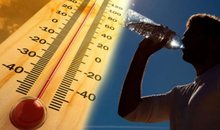
Heart health is at risk from extreme heat, here's what you should be careful of
2025-07-07 18:10:18
Today Gert Bogdani would celebrate, Edlira Çepani's touching dedication
2025-07-07 17:40:45
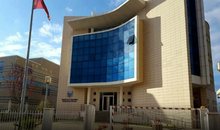


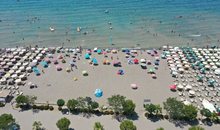


The striker severely accuses the Fenerbahce club: They tried to drug me
2025-07-07 16:21:03
A decomposed body is found in Kolonjë, initial suspicions
2025-07-07 16:03:31
Accident in Saranda, car hits motorcycle, one injured
2025-07-07 15:58:56

The most fertile age for men and women
2025-07-07 15:40:52
Locals, Rama candidate in 5 municipalities
2025-07-07 15:32:22
Blushi: Meta's criminal kidnapping, incomparable even to Navalny's in Russia
2025-07-07 15:20:34
Meet the iPhone 17 Pro, the main innovations in design and technology
2025-07-07 15:09:09
Why the release of Abi Malltez does not free him; much less Albania
2025-07-07 15:00:12
‘Lidhjet klienteliste’ të mjekëve mbushin recetat e pacientëve
2025-07-07 14:57:33
Poland imposes border controls with Germany and Lithuania
2025-07-07 14:48:15

Caught transporting firearms from Kosovo to Albania, young man arrested (NAME)
2025-07-07 14:37:47
Theo Hernandez flies to Saudi Arabia for medical check-ups
2025-07-07 14:26:47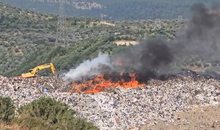


Scorching heat, Greece orders mandatory work holidays
2025-07-07 13:54:25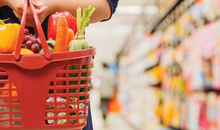




Trump expects Netanyahu to discuss Gaza ceasefire
2025-07-07 12:54:27
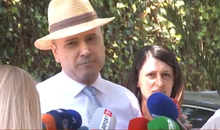
GJKKO releases Jamarbër Malltezi from house arrest
2025-07-07 12:35:02
Tourism among contrasts
2025-07-07 12:31:01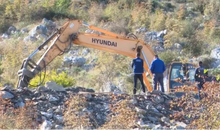
IKMT action in Theth, starts demolition of unauthorized constructions
2025-07-07 12:24:18

The Tirana-Kamëz line is destroyed by urban fire
2025-07-07 12:00:24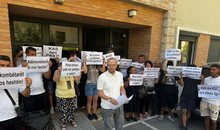




Poor direction!
2025-07-07 11:16:01


Rama to gather the country's mayors on July 9
2025-07-07 10:43:31
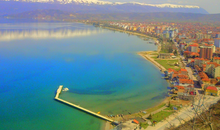
Ohrid Natural Park on the way to UNESCO's "black list"
2025-07-07 10:25:58

Registrations for the new school year begin in e-Albania
2025-07-07 09:59:09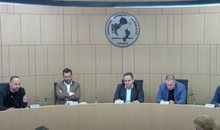
KAS decides the "fate" of the elections in four districts of the country today
2025-07-07 09:50:51
Rama does not give up on Vlora, visits the municipality again
2025-07-07 09:39:11
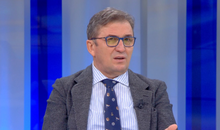

Fires in Gjirokastra, flames very close to cultural monuments
2025-07-07 09:12:49
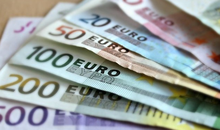
Foreign exchange, the rate at which foreign currencies are sold and bought
2025-07-07 08:39:57

Horoscope, what do the stars have in store for you today?
2025-07-07 08:14:17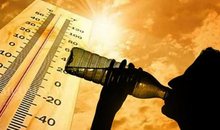
The week starts with scorching temperatures, the thermometer reaches 37°C
2025-07-07 07:58:36
Morning Post/ In 2 lines: What mattered yesterday in Albania
2025-07-07 07:45:15



Theologian: Behind Rama's idea for a Bektashi state in Albania, Israel is hiding
2025-07-06 20:57:48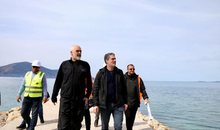
Rama's rhetoric without standards, comparing Paris, London, New York with Vlora
2025-07-06 20:35:52
Vehicle goes off the road, driver dies in Kukës
2025-07-06 20:07:47
What is the possible agreement on the Gaza hostages and the ceasefire?
2025-07-06 19:47:09

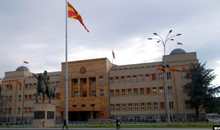
Massive hiring in the Macedonian administration ahead of the elections
2025-07-06 18:37:19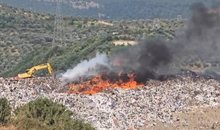
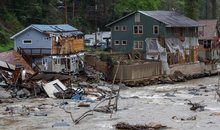
Texas tragedy: 59 dead and 27 girls still missing after devastating floods
2025-07-06 17:48:24
Albania for sale and purchase by Jared Kushner
2025-07-06 17:17:37
Kurti reacts to bomb threat in Parliament: Active hybrid war from Serbia
2025-07-06 16:55:59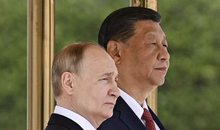

After clashing with Trump, Musk says he's forming a new political party
2025-07-06 16:14:27
Turkey increases political influence in the Western Balkans
2025-07-06 15:48:14
Dalai Lama turns 90 amid global adoration
2025-07-06 15:27:46
Tax for singles or those who do not leave
2025-07-06 15:04:00
Earth farther from the Sun, but scorching heat! Why is this happening?
2025-07-06 14:51:26
Fire at the Incinerator/ Gjokutaj Ironizes: PS should name the city Qelbasan!
2025-07-06 14:35:10
The youth exodus and Rama's political carnivals!
2025-07-06 14:16:04
VIDEO/ Gang fight in Greece revealed, 12 arrested, including Albanians
2025-07-06 13:47:52

Albania in fire, Rama at sea (VIDEO)
2025-07-06 13:04:45
New tactic revealed! France uses "Jet Ski" to stop migrants heading to Britain
2025-07-06 12:41:13
Balluku is becoming "Veliaj 2"
2025-07-06 12:16:11